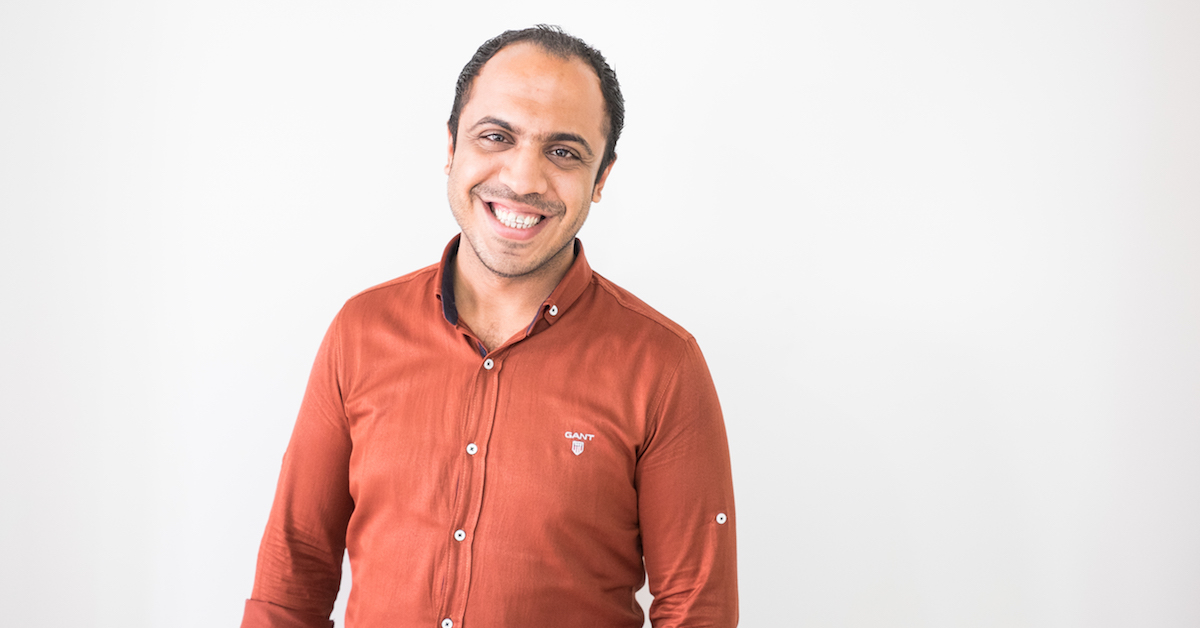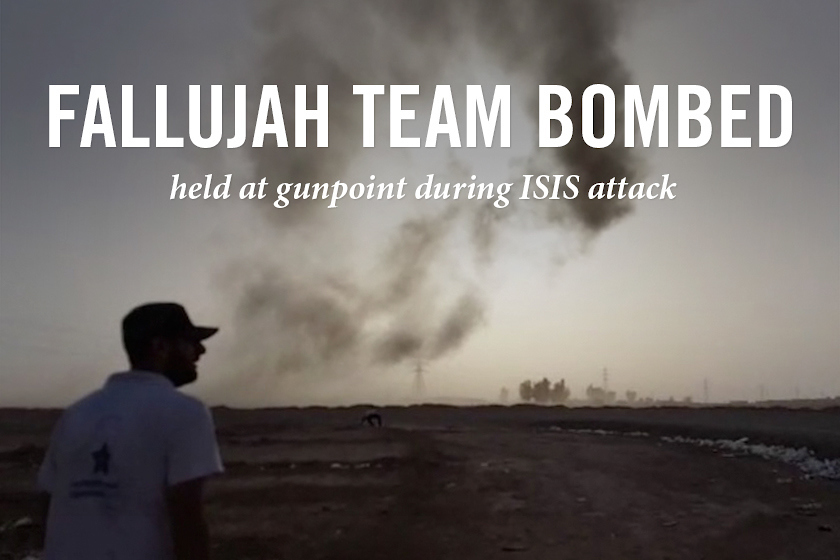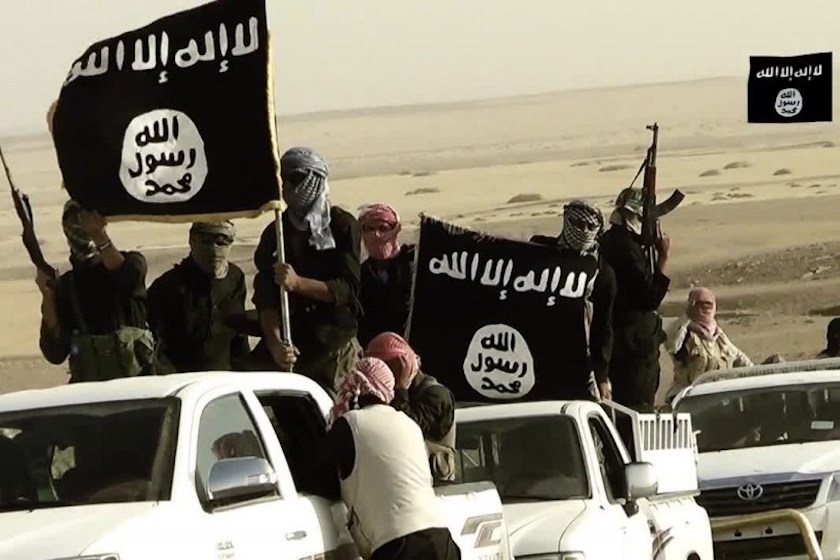
Episode 2: The Enemy
Is love worth the risk? Join us as we follow Sadiq’s journey on another aid mission, one that brought food and water to a detention center holding captured ISIS fighters—yes, ISIS. Hear, in Sadiq’s own words, why, even when he came face-to-face with the man who gave orders that resulted in the murder of his friend, he chose to love anyway.
Share this episode
Show Notes
It’s easy to say love anyway. It’s a lot more challenging to live it.
We might not all come face-to-face with a literal enemy who wants to kill us, but we all have chances to risk something on behalf of another, by stepping out in love, every single day.
In this episode, we ask the questions: Is love worth the risk? And what does it really look like to love your enemy?
In episode 1, we told you about the night our friends Sadiq and Ihsan nearly died delivering aid in the Iraq desert—one at the hands of ISIS, and the other when he was targeted by coalition air strikes, mistaken for ISIS.
In this episode, “The Enemy,” we share the story-behind-the-story: What happened just days before that longest night in the desert? It’s a true story almost too hard to imagine.
Because when Sadiq stayed with the delivery trucks, it wasn’t the first time his life was affected by a close encounter with ISIS.
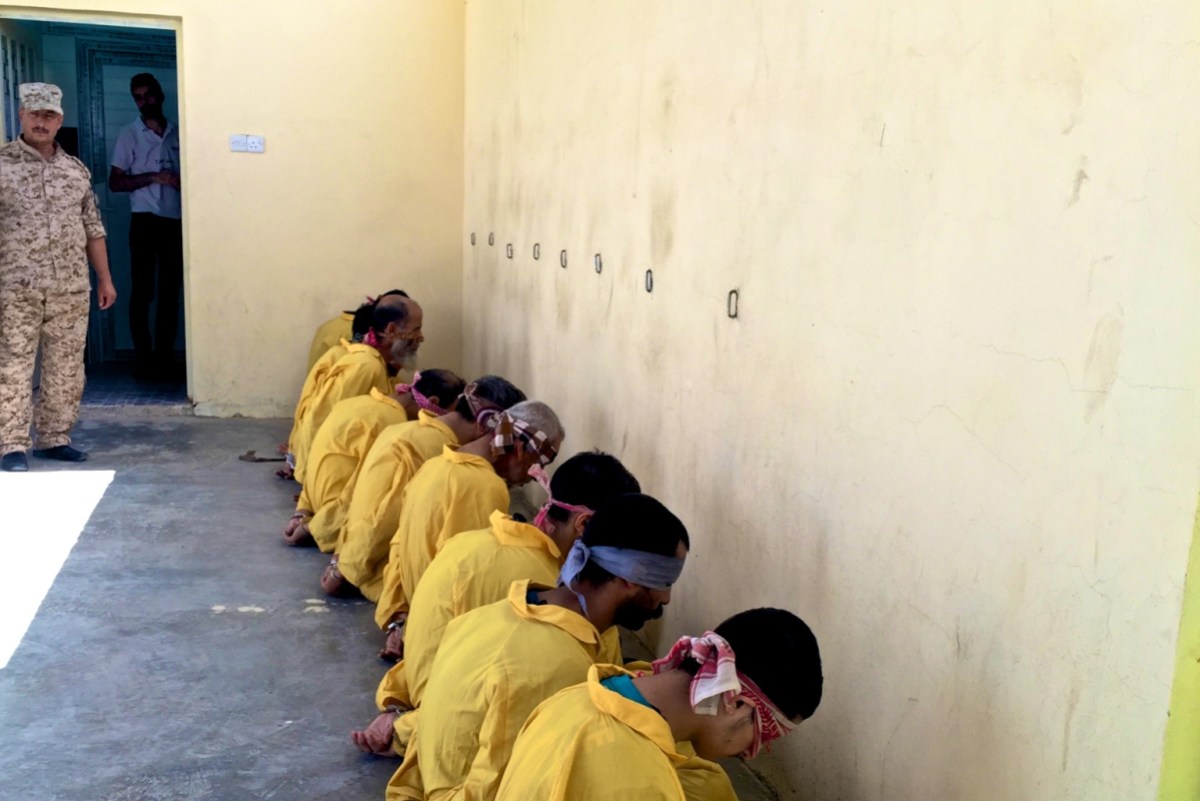
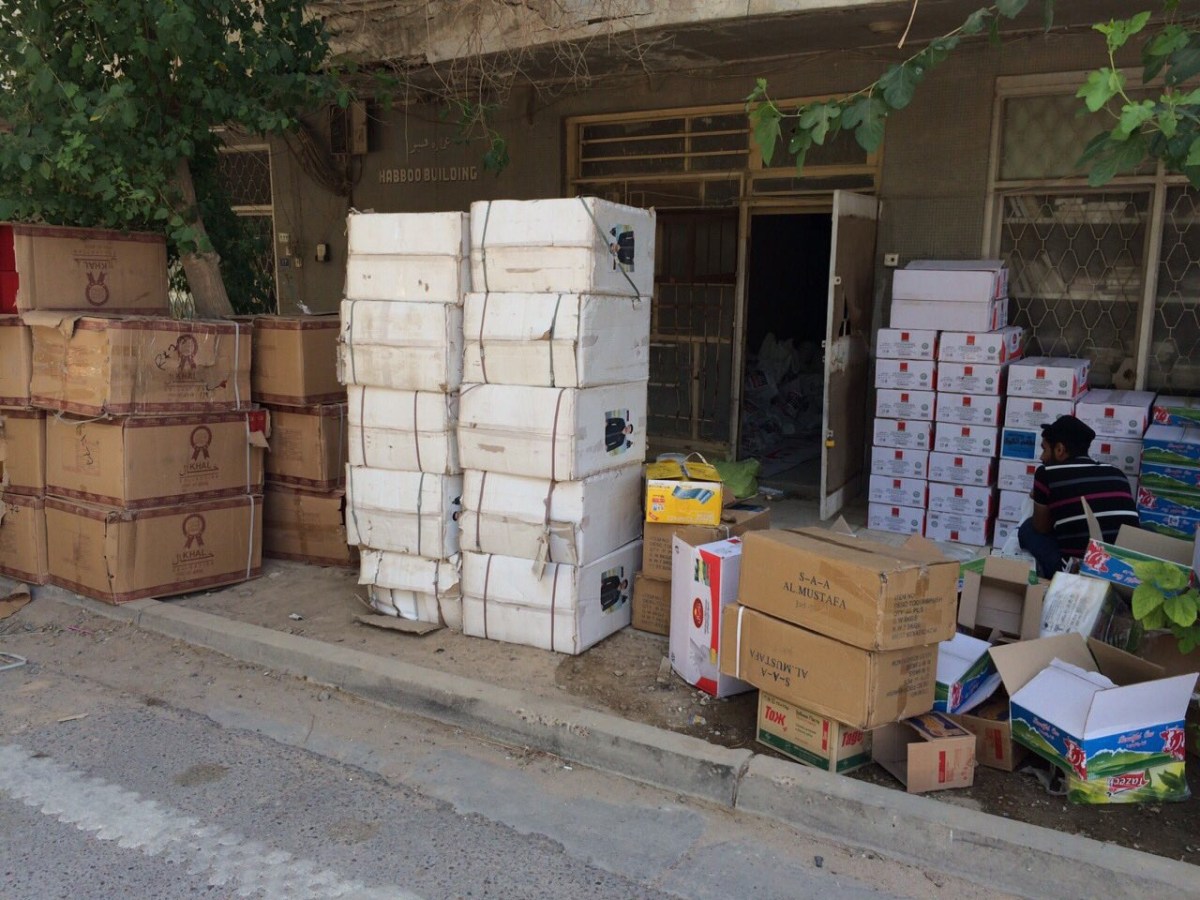
On episode 2, you’ll hear from:
- Erin Wilson: Preemptive Love’s senior field editor in Iraq, she brings experience and compassion as the host of our Love Anyway podcast.
- Jeremy Courtney: Founder and CEO of Preemptive Love, he shares his the behind-the-scenes of his decision to send aid to a center that held suspected (and some confirmed) ISIS members.
- Ihsan Ibraheem: Preemptive Love’s program documentarian in Iraq, Ihsan, who has put his life on the line with Sadiq, recounts his friendship with Sadiq, sharing the significance of Sadiq’s decision to bring emergency aid to the detainment center.
- Sadiq Al Rumaithi: A former soldier turned peacemaker, Sadiq was committed to mending his country’s wounds. Though loved ones were killed at the hands of ISIS, he drove with our team into the desert to a detention center filled with suspected ISIS members. Nothing about the call to love anyway was hypothetical for Sadiq.
- Ben Irwin: Preemptive Love’s director of communications, Ben wrestled with how to communicate his team’s decision to provide basic necessities to the men and teens in the ISIS detainment center. He had to ask, was it worth the risk?
Watch an exclusive video where Sadiq, in his own words, shares his story.
You’ll hear (and see) Sadiq’s first-hand experience from what we shared in Episode 1: The Longest Night, as well as more behind-the-scenes photos and video from the aid delivery you hear about in this episode.
Discussion Questions:
- Sadiq gave water to the man who gave orders to execute his friend. What surprised you about this decision? What would you have done?
- Loving “the enemy” comes at a cost. What comes to mind as you consider what it would look like in your own life to risk reputation, along with social or physical safety, to love anyway?
- Our everyday choices might not be as big and as bold as what you’ve heard today. But we have the opportunity, every single day, to love anyway. When have you risked being misunderstood?
Love Anyway is written and produced by Kayla Craig, Ben Irwin, and Erin Wilson. Skip Matheny is our digital production director. Dylan Seals is our sound engineer. Jeremy Courtney, Jessica Courtney, and JR Pershall are executive producers. Special thanks to Sadiq Al Rumaithi, Ihsan Ibraheem, and Sarmad Saman. Featured music was provided by The Brilliance, Sleeping at Last, and Roman Candle.
Don’t miss an episode. Subscribe now on apps like Apple Podcasts, Google Podcasts, and Spotify.
Additional Resources
Full Transcript
Ihsan: “I learned mercy from Jesus Christ, I learned mercy from Prophet Mohammad. That even if somebody killed a very important person in your life, you can forgive him.”
Erin: Is love worth the risk? In episode 1, we told you about the night our friends Sadiq and Ihsan nearly died delivering aid in the Iraq desert—one at the hands of ISIS, and the other when he was targeted by coalition air strikes, mistaken for ISIS.
In this episode, you’ll hear the story-behind-the-story: What happened just days before that longest night in the desert? It’s a story almost too hard to imagine. Because when Sadiq stayed with the delivery trucks that wasn’t the first time his life was affected by a close encounter with ISIS.
Join us as we follow Sadiq’s journey on another aid mission back in 2016, one that brought food and water to a detention center holding captured ISIS fighters—yes, ISIS. You’ll hear, in Sadiq’s own words, why, even when he came face-to-face with the man who gave orders that resulted in the murder of his friend, he chose to love anyway. But before we get to Sadiq, step into the story-behind-the-story-behind-the-story.
I’m your host, Erin Wilson, Preemptive Love’s senior field editor in Iraq. And you’re listening to the Love Anyway podcast. This is episode two, “The Enemy.”
Erin: It’s easy to say “love anyway.” It’s a lot more challenging to live it out. We might not all come face-to-face with a literal enemy who wants to kill us, but we all have chances to risk something on behalf of another, by stepping out in love, every single day. Today we ask the question: Is love worth the risk? What does it really look like to love your enemy?
Jeremy: I’m Jeremy Courtney, co-founder of Preemptive Love. The longest night in the desert, that you heard about last episode, was yet to unfold when this story takes place. But all around Iraq, we were responding to crises.
Erin: The crisis in Fallujah–a place held by ISIS for two and a half years–was coming to a head. Fallujah was the very first city captured by ISIS, in part, because residents couldn’t see the coming danger. They felt abandoned by their own government and fellow citizens in other parts of the country. They couldn’t imagine how ISIS could serve up any indignity worse than what they had already suffered.
They were wrong.
Fast-forward to the day that ISIS’ hold on the city crumbled: around 90,000 people poured out of Fallujah, risking their lives against rooftops filled with snipers and fields laced with landmines. They were so desperate for freedom, they were willing to take the risk.
As families arrived at makeshift displacement camps quickly set up in the desert outside Fallujah, we started bringing food and water. <brief pause> But something was wrong.
Jeremy: We started wondering where all the men were, that’s really where it started. We’d show up in these camps to help the women and the women would be left putting up these tents by themselves, hauling huge bags of food that we were providing by themselves, and there was just an obvious absence of men everywhere we went. And as we started asking, ‘Where all the men?’, we started hearing about these detainment centers where they were they were being locked away.
Erin: Those who made it out of Fallujah alive were immediately separated into two groups by the Iraqi military. Women, children, and the elderly were directed to refugee camps, while the men and teenage boys were all sent to detainment centers, automatically suspected of being members of ISIS.
Jeremy: Some of these guys were innocent. But there were also known confirmed ISIS members among those detained.
Imagine a sweeping dragnet that the security forces just dropped over the whole city, which meant they grabbed up a lot of innocent people along with the guilty, especially if you are a man. But if you look at it from their military perspective, back in Fallujah, when you go house to house in these places that had been fighting, you can see these piles of beard clippings on the floor of these various homes and shops and street corners. It was this telltale sign that a bunch of guys had shaved their beards and tried to get out of town as fast as possible trying to blend in with your average family that was fleeing, trying to escape undetected. And so the security forces just dropped this dragnet on the whole place in hopes of, you know, not letting anyone get away.
And they put them in these detainment centers where a bunch of men and teenagers were held in miserable conditions. It was stifling hot, the hygiene was terrible. It was just a breeding place for disease. The men were wearing the same clothes that they’d been wearing when they got grabbed days, weeks, in some cases, maybe months before.
And most obviously, there wasn’t enough food or water for everyone to go around.
Erin: Jeremy made the decision–and it was a difficult one– to do something about it. We’ll talk more on that later. But for now, we focus on Sadiq al Rumaithi. Because when the decision was made to bring food, water, clothes, and basic toiletries to men and teenage boys held in one of these detainment centers, it fell to Sadiq, who often handles logistics when we deliver aid, to help make the arrangements.
This was a complicated mission for Sadiq. He was a former soldier turned peacemaker. He was committed to mending his country’s wounds. But he was also hurting–many of his friends, family members, and former fellow soldiers had been killed at the hands of ISIS.
I sat down with Ihsan Ibraheem, who put his life on the line alongside Sadiq during aid delivery trips. I asked Ihsan to describe his friend.
Erin: Who is Sadiq?
Ihsan: Sadiq Arumaithi. He is from the same city that I am. I didn’t know him before those trips, I didn’t know him before ISIS and Fallujah. So, first time I knew him, because of the trip that we make together, which is the first place to go during the war against ISIS, when they started in Anbar.
Erin: The first place we were delivering food?
Ihsan: The first place we were delivering food to. And, he is very nice, gentle, loving person. Always working; how to resolve this? How to make peace? It’s not about just war. It’s not about just delivering food. It’s about how to use love in making peace.
So, a little background about Sadiq: During that time he was studying. In law school. And he didn’t even graduate yet. But he was using that time to go and make those trips, and get us permissions, facilitate our walk to access safely, and also drive back safely so we can go again.
Erin: I think, in 2016, he was just 25, yeah?
Ihsan: Yes. He’s very young! I was actually surprised he was that young. I didn’t know him, didn’t know more details. I was, like, getting to know him very quickly, and I found out he’s still studying in college. He didn’t married yet…but he have this, this sense of responsibility. Of a man in his forties. A man who have experienced many things, he’s not just, you know, a simple person in a city that he want to make living, or to graduate, or to find a job. He have many, many ideas, that I think, here in Iraq, we need, always. So yeah, he’s a very impressive person.
Erin: Sadiq brought, and still brings, his passion for peacemaking to his collaboration with Preemptive Love. He has continued to risk stepping toward peace, even when it means loving his enemy.
For many of us, ISIS seemed like a faceless horde spreading across the Middle East and beyond.
But not for Sadiq.
Because a little while before planning this distribution, Sadiq, like many others in Iraq, saw a disturbing video flash across his phone.
News clip
It showed a row of tribal leaders who had pledged their loyalty to ISIS–their faces uncovered as if they were proud of what they were doing. They were reading a speech calling for an attack against the Iraqi militias fighting ISIS.
A short while later, ISIS fighters did attack the front lines where Iraqi forces tried to reclaim land. When the bullets and dust settled, fifteen men–militia members from Sadiq’s hometown–were dead.
Including Sadiq’s friend who had relieved him of military duty just the night before.
Erin: Despite everything he had seen and felt, Sadiq drove with our team into the desert to a detention center filled with suspected ISIS members. Nothing about the call to “love anyway” was hypothetical for Sadiq.
We’ll be right back.
Ad: Hi, I’m Toni Collier, Frontlines Director with Preemptive Love Coalition. By joining Preemptive Love’s monthly giving community, you’re taking in active role in helping families in conflict around the world as you pursue peace where you live. The Frontline is a monthly giving community that gives more than money. We give what we can every month to help those affected by conflict and disaster. Then we gather to learn from each other in a safe environment, so we can unmake violence together. Finally, we go together into our communities and pursue peace, because the frontlines are where we live. Become part of the story of writing the more beautiful world at preemptivelove.org.
Erin: So, how did we even get to this point of sending aid into a detention center? Here’s Jeremy Courtney, sharing his team’s reaction after he proposed the idea
Jeremy: Well, at first, I remember astonishment. Like, ‘Wait, what do you…What do you mean, you want to send aid to the prisoners? They’re associated with ISIS, you know that right?’ And that opened up room for a conversation.
Erin: Jeremy couldn’t stop thinking about what had to be running through these men’s minds.
Jeremy: ‘If you treat me like an animal, if you if you call me a traitor, if you don’t feed me, it’s 125 degrees outside, and we have no comfort at all. And I know I’m innocent? And the guy next to me starts whispering about what we should do to these occupying forces who are disrespecting us so? Well, now my heart’s starting to become more and more open to retaliation. More and more open to the injustice of it all. And I might actually change from one side to another from one perspective to another, in the process of just wanting to get back to my family.’
I think that’s how change happens. We’re all vulnerable to it, I’m I would be vulnerable to that. So the conversation became, I tried to shift the conversation to not fixating on whether or not we would give aid to a few guilty people. But whether or not we could give dignity, and interrupt the transmission of this ideology, for who I assumed were the hundreds and hundreds of innocent people.
And from the Iraqi friends and partners who are involved in the conversation, the initial shock was just like, ‘No other aid organization really talks like this. No one we know is reaching into this environment. There’s just…those guys, once rounded up and sort of marked with that scarlet letter…are untouchable until they are fully exonerated. And you want to go into the murk?
Erin: We did want to go into the murk. Absolutely. Because what else has the power to transform hearts?
Jeremy: What do we really want here? Do we want retribution? That’s understandable. But if you, if you say on the one hand, ‘you want retribution’, and then you say, on the other hand, ‘so that we can have peace’, you’re really at crossways with yourself. Because retribution doesn’t lead to peace.
So if you keep your eye on the end goal, that the prize, a world where everything rises, a world where everyone gets some legit equality and legit standing in the world…retribution has to be off the table at that point. And so if we’re not pursuing a retributive justice, where we make these guys pay for what they did to us, then it starts opening up a whole lot of possibilities.
And you’d have to start asking different questions like: If not retribution, what has the power to metabolize hate and turn it into love? What could take an enemy and make a friend?
And our position, our theory, and our life is built around this conviction that it’s, it’s preemptive love—it’s the love that strikes first. It’s the love that goes in. It’s the love that takes that risk, jumps forward to do something for the other person before they’ve done anything for you. And then to do it over, and over, and over again.
To love anyway, in spite of…for as long as you can. And that’s, that’s what this whole thing was about for us.
Erin: That’s how Sadiq found himself standing in a courtyard in the middle of a detention center filled with men both accused and convicted of being ISIS members, ready to deliver a hot meal, emergency drinking water, an inexpensive change of clothes, and basic hygiene kits.
It was summer, and it was sweltering. The sun beat down on the men. Hemmed in by concrete walls that radiate heat, temperatures in that courtyard continued to rise. Many of the men and teens Sadiq came face-to-face with had been held in a state of limbo—they hadn’t yet been convicted of being connected to ISIS, but they hadn’t been cleared of suspicion, either. Military officials used the occasion as a photo-op, snapping selfies to show the nation there were “doing something about the militants.”
And during the distribution, Sadiq found himself standing a little apart from the main group of detainees, facing a row of prisoners who were convicted of being leaders during the reign of ISIS.
Ihsan: So those who were ISIS members, they were wearing whatever were the clothing they have or their underwear. Those who are accused of being leaders, they actually are being given a prison dress, a yellow…
Erin: A yellow jumpsuit?
Ihsan: A yellow jumpsuit.
Erin: At the detention center, Sadiq saw bound, blindfolded prisoners in yellow jumpsuits. Despite the fact that one man, in particular, looked so different–vulnerable and unkempt, kneeling on bare concrete and facing a wall instead of standing in the pristine robes of a sheikh–Sadiq knew. He recognized one of the kneeling men in a yellow jumpsuit because Sadiq had seen him before. In that ISIS propaganda video. Issuing orders for the attack that killed Sadiq’s friend, killed fifteen young men from his community and very nearly killed him.
Erin: What would you do in that situation? In his own words, here’s what Sadiq did.
Sadiq: I gave him water to drink, he drank the water.
Sadiq: He told me, “why did you give me water?” I told him that we learned this from Jesus (peace be upon him), and from the Prophet Mohammad (peace be upon him).
Sadiq: I talked to him in [religious] language that he would understand.
Sadiq: This peace is what I believe in, this is my understanding of Islam, that there must be peace even with the enemies and the murderers of friends and dear ones.
Erin: The men in yellow jumpsuits were confirmed ISIS members, responsible for ordering the deaths of their neighbors. Their guilt was not in doubt. The leader was there, bent over, sweat covering his body, his dirty hands cuffed behind his back. He was jammed between hundreds of men in a space that was meant for a dozen.
Ihsan: He could not do anything.
Erin: So what did Sadiq do?
Ihsan: He actually took the bottle of water, and he made him drink. He put the bottle to his lips, and give him water. And he was telling him, this is the true Islam that I know. I don’t know the Islam that you know, but I know it’s not the one I believe in.
Erin: In the presence of his in-the-flesh enemy, Sadiq offered his enemy a sip of cool water. He offered forgiveness with his actions, and with these words:
Sadiq: What I understand of Islam, that my concepts are different than yours. You’ve killed my relatives, friends, and dear ones. And I gave you water as an act of forgiveness from me to you.
Sadiq: Honestly, after I finished speaking, he started to cry.
Erin: Why did Sadiq do it? How could he offer love to the very man who had stolen so much?
And could we—would we—possibly do the same?
Sadiq: I saw them, I see in their eyes, all of my friends who were killed in this city, I also saw all of my relatives who were killed.
Sadiq: Everyone else expected me to seek revenge.
I told him that intellectual differences don’t mean that we lose love, love is humane, enriches our humanity, and allow us to agree and get along. The way of mind is the heart, so if we open our hearts to each other, our minds can open wider.
Ihsan: Sadiq was giving him many examples of how mercy is the prophet, how mercy is the religion. And what he learned, he was telling him that, “I learned mercy from Jesus Christ, I learned mercy from Prophet Mohammad. That even if somebody killed a very important person in your life, you can forgive him. So I have, like, a peaceful mind. And now I see that you’re thirsty. This is water, and you can drink.”
Erin: Visiting the detention center, offering water to an enemy: That’s a decision that comes with risk. A risk with serious cost.
Ihsan: ..to show that, “Okay, though, we need to think again of what we’re doing. Yes, they’re ISIS, they kill, they execute. But if we didn’t act different, then we are no different from them.” 53:19 And this is a very dangerous thing, actually, to say. You can’t say it to everyone. They will just accuse you of being a traitor, or have compassion to that community who killed and tortured many people, and you need to be careful of how to say it, how to deal with it.
Erin: Right, so there can be a big social cost to loving in this circumstance.
Ihsan: Yeah, you will be somehow outcast from the community. People will just feel that, “Oh, that guy is have more compassion to ISIS, can you believe that?” It’s not that.
Erin: In many ways, laying down our proverbial — and in Sadiq’s case — literal — weapons, leads us to risk relationally — what will happen to our social capital when we step sideways into love?
Sadiq had a choice to make. He chose to love anyway when he went on this aid mission. He chose to love anyway when he gave water to a shackled enemy.
And Jeremy Courtney had choices to make, too. He had already decided to love the perpetrators of the very violence he was working to unmake. But would he talk about that work…publicly?
Jeremy: I remember I did an interview with The New York Times, the night that we first reached into one of these detainment camps. And it was kind of a head-scratcher of an interview.
They didn’t seem to compute what I was talking about, with trying to pursue this strategy or this agenda—this philosophy that we have called ‘preemptive love’. And after that interview, I found myself feeling cautious. Suddenly asking questions like, ‘Is this…is this more controversial than I realized?
Ben: Honestly, part of what made it not straight forward was even just internally sorting out how I felt about it.
Erin: Ben Irwin, Director of Communications and PR for Preemptive Love, was responsible for communicating about the aid delivery to our community of donors.
Ben: In my head, it made sense. It was the right thing to do. But you know, I’m responsible for our public image and our communications. I have to think about like, how do we explain this? How do we bring people along in a way that helps them understand this, this was, in some ways, maybe one of the first real tests of some of what we say every day about loving enemies, about showing up. Even for people who hate you.
Jeremy: It seemed like just an inevitable outflowing of who we are—this is who we are, like it or not, join us or don’t, pull your money or give us more. But this is who we are. This is what we do. This is our core conviction. This is how we see the world. And it, it felt like one of those inevitable fork-in-the-road kind of moments where it was like our…to do the thing is one thing. To make it a hallmark of how you see the world and to let it define you…it started to take on that kind of inevitability to it.
Erin: Ben spent sleepless nights weighing out what the cost might be if donors didn’t join in on this radical move to love the enemy.
Ben: Is it worth it? Is it worth the risk to our reputation? Is it worth our ability to keep doing the work that we were doing for the 80 to 90,000 people who had fled Fallujah out into the desert, who clearly needed and clearly deserved help.
Erin: Sharing the story…was it worth it?
Ben: Yes, it was absolutely worth sharing. Because otherwise, I mean, otherwise ‘Love Across Enemy Lines’—it’s just a slogan on a tshirt. And not a lived embodied reality. And now has a face. And it has a name. And now we have a model for how we can do this in our communities. And that that’s the real test.
Are we just going to like celebrate Sadiq, and what he did? Or are we going to go and try and emulate that in our own communities on our own front lines? Because otherwise, then it’s just a story and it will be forgotten eventually. But if we actually try to live it out, if we try to, to be like Sadiq, in our communities and our neighborhoods with that person who is other to us…
I just I wonder… I wonder what could happen in our communities. At the very least, we could prevent a repeat of history here. And at the very best, I think we could heal a lot of wounds and a lot of the division and polarization that has defined our existence for too long.
Erin: Our everyday choices might not be as big and bold as what you’ve heard today. But we have the opportunity, every single day, to love anyway. To risk being maligned or misunderstood when we choose to speak out against injustice, when we choose to invite a stranger to the table when we choose to stand with someone doing what’s right…but unpopular.
What will your people say when you do the unthinkable? Would you risk reputation, social and physical safety, would you risk it all to love anyway?
Visit the show notes on our website at preemptivelove.org/podcast to see exclusive photos from that aid delivery. You can also watch a video of Sadiq sharing more of his story. We’ll also link to those first blog posts Ben approved, the ones about ISIS, the ones he risked sharing.
In our next episode, you’ll journey with us as we discover what it looks like to love anyway, right in our own backyards. The unknown can be scary. How do we move past fear? In episode three, you’ll travel with podcast producer Kayla Craig and her pastor husband Jonny as they record their surprising experience of visiting a mosque in the middle of the US. Until next time, I’m Erin Wilson.
Jeremy: Hi, I’m Jeremy Courtney, founder and CEO of Preemptive Love. Thanks for listening to the Love Anyway podcast. Don’t miss an episode. Hit subscribe now.
Erin: And before we go: An easy and free way to join us in unmaking violence and continuing these stories is simply to review the Love Anyway podcast on iTunes. We’re a new podcast, and we need you to link arms with us to keep going. When you leave a five star iTunes review, you help others join the conversation. Need directions on how to leave a review? Visit preemptivelove.org/podcast.
You can also connect with us and learn more about what we do via @preemptivelove on Instagram and Twitter. Use the hashtag #loveanyway to give feedback or start a conversation.
The Love Anyway podcast is written and produced by Kayla Craig, Ben Irwin, and Erin Wilson. Skip Matheny is our digital production director. Dylan Seals is our sound engineer. Jeremy Courtney, Jessica Courtney, and JR Pershall are executive producers. Special thanks to Sadiq Al Rumaithi, Ihsan Ibraheem, and Sarmad Saman. Featured music was provided by The Brilliance, Sleeping at Last, and Roman Candle.

